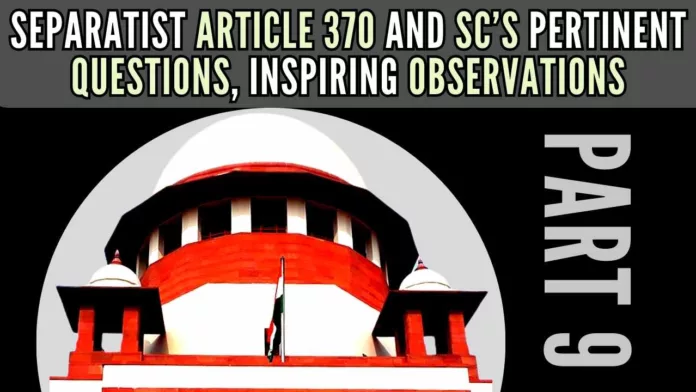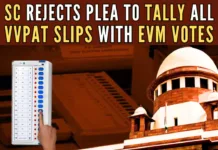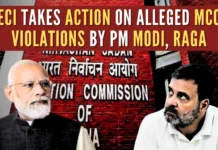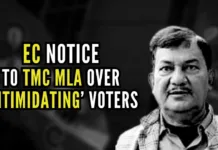
The previous 8 parts of the article can be accessed here Part 1, Part 2, Part 3, Part 4, Part 5, Part 6, Part 7, Part 8. This is the ninth part
Article 370 abrogation in J&K stays valid
The five-judge constitutional bench heard the petitions against and for the 2019 reforms for 16 days between August 2 and September 5. No less than 40 advocates from both sides appeared. There were indications that Chief Justice Chandrachud-headed five-judge constitutional bench would watch, protect, and promote further the nation’s paramount interests and interests of the marginalized and discriminated against sections of society in J&K, including women, and deliver a judgment that would be rational, national and fair. And, it did exactly that on December 11, 2023. It said the August 2019 action was constitutionally valid and the Union government didn’t go beyond the constitutional confines.
Nation, Parliament supreme
The fact of the matter is that the meaningful observations made and searching questions put by the Chief Justice and other judges during the course of the hearing on Article 370 and J&K’s reorganization had strengthened the belief that the bench would deliver a judgment that recognizes the Parliament’s legislative domain; that unites, and not divides; that upholds what lays embodied in the preamble of the Indian Constitution; and that enables the government to end the menace of separatism, coupled with the cult of terrorism. The bench did exactly that, notwithstanding some critical comments on the process that the authorities followed. Indeed, the Supreme Court delivered an epoch-making judgment.
The bench’s observations that no Constituent Assembly “can have an indefinite life” and “we are…creating a new category (of state), apart from basic structure, and Article 370 belongs to that” were, undoubtedly, very inspiring.
No to referendum
Similarly, it rejected the atrocious suggestion which virtually supported the idea of a referendum in J&K. “So long as a democracy exists (in India) as it does, in terms of constitutional democracy, any recourse to the will of the people has to be expressed and sought through established institutions…You cannot envisage a situation like Brexit type referendum…,” the Chief Justice had said in unequivocal terms. And, what he said constituted an indication of the direction the bench would like to go to.
Article 370 not permanent
The question “How could Article 370, which was envisaged as a temporary provision, be converted into a permanent provision merely by proceedings of the J&K Assembly?”, and the observation that “once it is assumed that the Parliament can amend Article 370, then such amendment of Article 370 would be subject to criticism on the ground of morality, but not on the basis of a lack of authority” was yet another very positive and inspiring indication.
The bench also considered two questions. The questions were: “If Article 370 became permanent after 1957, why was it then placed in Part XXI of the constitution which deals with “temporary, transitional and special provisions”? “If it became permanent, does that mean there is a provision of the constitution, besides the basic structure, which lies even beyond the amending power of Parliament”? Sub-clause 3 of Article 370 clearly provides for a process by which it can be de-operationalized; thus, it was very difficult to suggest that “Article 370 has such a permanent character that it can never be amended.”
Sovereign is India
So much so, the bench had in unequivocal terms observed that “surrender of J&K’s sovereignty to India was ‘absolutely complete’ with the accession of the former princely state in October 1947”; that “one thing is very clear that there was no conditional surrender of sovereignty of J&K with India”; that “once sovereignty was absolutely vested in India, the only restraint was on the power of Parliament to enact laws (in respect of the state), but one thing is clear, the sovereignty of J&K was ceded completely to the Union of India…”
Similarly, the Chief Justice’s observation about the same arguments put forth again and again by the petitioner’s counsels that the “bench (has) reached a level of mental saturation” and the question that “can the constitution of federating unit rise above the source of federating unit?” had only served to suggest that the nation will win the case and the separatists would lose the case, and lose very badly.
Article 35A took away fundamental rights
And, what was no less inspiring was the Chief Justice’s observation on Article 35A. Taking on the petitioner’s counsels, the Chief Justice had observed that “by enacting Article 35A, they (in this case the Nehru government) took away fundamental rights of equality, liberty to practice profession in any part of the country and even granted immunity from legal challenges and the power of judicial review.”
We will survive if nation survives
The Chief Justice had made several other observations that clearly suggested that for him and the Supreme Court, the issue of national security was the fundamental issue. “We are conscious of the fact that these are matters of national security. We understand that ultimately, the preservation of the nation itself is the overriding concern…let’s face it, whether it’s a state or UT, all of us survive if the nation survives. If the nation itself doesn’t survive, there is no relevance of state or UT…Should we not give that allowance to Parliament to postulate that for a certain period, in the interest of the preservation of the nation itself, in the interest of preservation of the Union itself, we want, for a certain stipulated period, that this particular state (J&K) should go in the fold of UT,” the Chief Justice, for example, had observed while endorsing the point of view of the government on the issue of statehood, and not endorsing the arguments advanced by the petitioners’ counsels on the same issue.
Besides, the bench didn’t make any observation when the Solicitor General told it that “Ladakh will remain a Union Territory” and that it was for the Election Commission of India and J&K’s election office to decide on Assembly elections.
Other significant observations
Observations like “Article 370 has self-limiting character” and “this is also very odd to say that you must own a property to ‘get permanent resident status’ (in J&K as) it would be difficult to get documents of 1927” had further served to reassure the nation that things were moving in the right direction. These observations were made by the Chief Justice and Justice Khanna, respectively, while reflecting on the nature of Article 370 and Section 6 of the J&K Constitution and Article 35A, which doesn’t find a place in the main body of the Indian Constitution.
SC and disturbed Kashmiri autonomists
But these constitute only a few of several such observations made by and questions put by the apex court during the course of the hearing. All of them were inspiring. That perhaps was the reason that frustrated, desperate, and out-on-the-limb Kashmiri separatists and hardcore communalists like Omar Abdullah and Mehbooba Mufti had to invoke God, Lord Ram, and Lord Krishna and appealed to them to help them get back Article 370, Article 35A, and statehood status and reunite Ladakh with Kashmir. Mehbooba Mufti and Sajad Lone had even gone to the extent of questioning the very credibility of the constitutional bench and its approach.
Mehbooba Mufti had, among other things, said: “Fortunately, we still have some faith in the Supreme Court of this country. I want to appeal to them that the country believes in the principle ‘Raghukul reet sada chali aayi, pran jaye par vachan na jaye’. I am not talking about those who kill in the name of ‘Jai Shri Ram’ and lynching in the name of ‘Jai Shri Ram’. I am talking about those of the majority community people who believe in ‘Ramchandra ji’, his vachan (promise) that ‘Raghukul reet sada chali aayi, pran jaye par vachan na jaye’ so I think that ‘vachan’ is on trial today in the Supreme Court…It is not just a legal issue for me; it is an emotional issue for the people of J&K…Now the Supreme Court has to decide whether they want to play the role of Lord Krishna or Dhritarashtra. If they want to play the role of Krishna they have to see whatever wrong things happened with us after the abrogation of Article 370. If they don’t see this then like Drishtrashtra they have covered their eyes.”
Omar Abdullah had, inter-alia, said: “We are fighting and we are there with a hope for justice. We have not left any stone unturned; we engaged the best lawyers and their performance was appreciated by all…Win or loss is in the hands of God. A human being can only try and we did not leave any stone unturned. Now, we should pray to God to give us success.”
As for Lone, he, inter-alia, had said: “I am disappointed, not because of J&K, but partly because of the judiciary. This is the highest pedestal of the judiciary and if it asks a question and the answer is the same and as ambiguous and evasive as it was four years ago, then I think it is a matter of concern…No timeline was given by the BJP-led Centre regarding restoration of statehood or holding the assembly polls in J&K and even the arguments presented were political and not legal. ‘These are very specious, fallacious arguments’ and I hope and pray that legality prevails, justice prevails and as has been apparently observed in the highest court, constitutional challenges are decided based on what is written in the constitution and not based on these other arguments that are political in nature.”
Spurious, untenable arguments
That the nation would win hands down and the separatists would suffer a humiliating defeat had also become clear from the arguments the petitioners’ councils, including Kapil Sibal, Gopal Subramanium, Rajeev Dhavan, Dushyant Dave, Zaffar Shah, Shekhar Naphade, Sanjay Parikh, P C Sen, C U Singh, Nitya Ramakrishanan, Meneka Guruswamy, Gopal Shankarnarayan, and Manish Tiwari, had advanced. The reason: Their concept of India and on India; their concept of state and on state; their concept of nation and on the nation; their concept of sovereignty and on sovereignty; their concept of internal autonomy and on internal autonomy; their concepts of secularism, federalism, and democracy and on secularism, federalism, and democracy; and their concept of border and on the border were all flawed and divisive. So much so, one of the petitioners’ counsels invoked Bengal partition in 1905 the Indian Councils Act of 1919, and the Government of India Act of 1935 to make his point as far as reorganisation of J&K was concerned.
Lord Curzon had partitioned Bengal on communal lines in 1905 to pit Muslims against Hindus and the 1919 and the 1935 Acts were passed by the British Parliament also to pit one Indian community against another and sowed seeds calculating to breaking India into smithereens.
The truth, in short, is that their whole approach was highly communal, divisive, and not holistic. That it was so could be seen from the fact that not even one petitioner’s counsel even once referred to the aspirations, needs, and compulsions of the Hindu-majority Jammu province and three out of four regions of Ladakh (Leh, Nubra, and Zanskar) — all overwhelming Buddhist. They only considered over 99 percent Muslim-dominated Kashmir the sole factor in the region’s socio-religious and political situation. They were so biased, irrational, and undemocratic.
Effective counter
On the contrary, the country’s top law officers, including Attorney General R Venkataramani, Solicitor General Tushar Mehta and Additional Solicitor General K M Nataraj; Kanu Agarwal, Additional Advocate General, J&K; and the counsels of other respondents such as senior advocates Harish Salve, Rakesh Dwivedi, Mahesh Jethmalani, V Giri, Bimal Jad and Gurukrishna Kumar interpreted the relevant laws in the manner they should have been. Their approach was constitutional, nation-centric, and humane. They put forth their arguments in a very effective manner to highlight the baneful influence of Article 370 and Article 35A on the state polity and on the country’s polity. They highlighted the sufferings of women of J&K, Hindu and Sikh refugees from Pakistan, and refugees from PoJK and Kashmir – all victims of Article 370, fanaticism, and the politics of exclusiveness. Besides, they called the bluff of the petitioners’ counsels and put the concepts of sovereignty, federalism, secularism, and democracy in the right perspective and defended the August 2019 reform scheme in a very effective manner.
Nation’s splendid victory
Indeed, the Supreme Court’s verdict would go down in the history of integration of states as a crowning triumph of the suffering nation and a humiliating defeat of separatists of all varieties. And, the full credit goes to Prime Minister Narendra Modi and Home Minister Amit Shah, who had the will and the capacity to do what they did on the eventful August 5-6, 2019. What the Narendra Modi government did in August 2019 and what the constitutional bench did on December 11 must be construed as a floral tribute to Dr Shyama Prasad Mookerjee – The Martyr. The landmark judgment would certainly help the Union government check fissiparous tendencies in different parts of the country and further protect and promote the nation’s sovereignty.
NO wonder then that the nation hailed the SC’s verdict as its splendid victory and the defeat of separatists and half-separatists in Kashmir and their ultra-secular supporters outside Kashmir.
Kashmiri reaction
That the votaries of greater autonomy, self-rule, and dialogue with Pakistan, including Omar Abdullah, Mehbooba Mufti, Sajad Lone, Ghulam Nabi Azad, and others of their ilk, were religiously bound to denounce the SC’s verdict was a foregone conclusion and they did it. Hence, it is hardly necessary to reflect on what they said. Suffice it to say that they are in a state of shock as the SC put the stamp on the Modi government’s reform scheme.
(Concluded)
Note:
1. Text in Blue points to additional data on the topic.
2. The views expressed here are those of the author and do not necessarily represent or reflect the views of PGurus.
For all the latest updates, download PGurus App.
- ‘Kashmir My core constituency’: Revisiting July 12, 2003 to understand politics, Omar Abdullah-style - March 15, 2024
- Total deviation from traditional approach: Seven takeaways from PM Modi’s March 7 Srinagar visit - March 9, 2024
- Status of political parties: Why is further J&K reorganization imperative? - March 1, 2024










